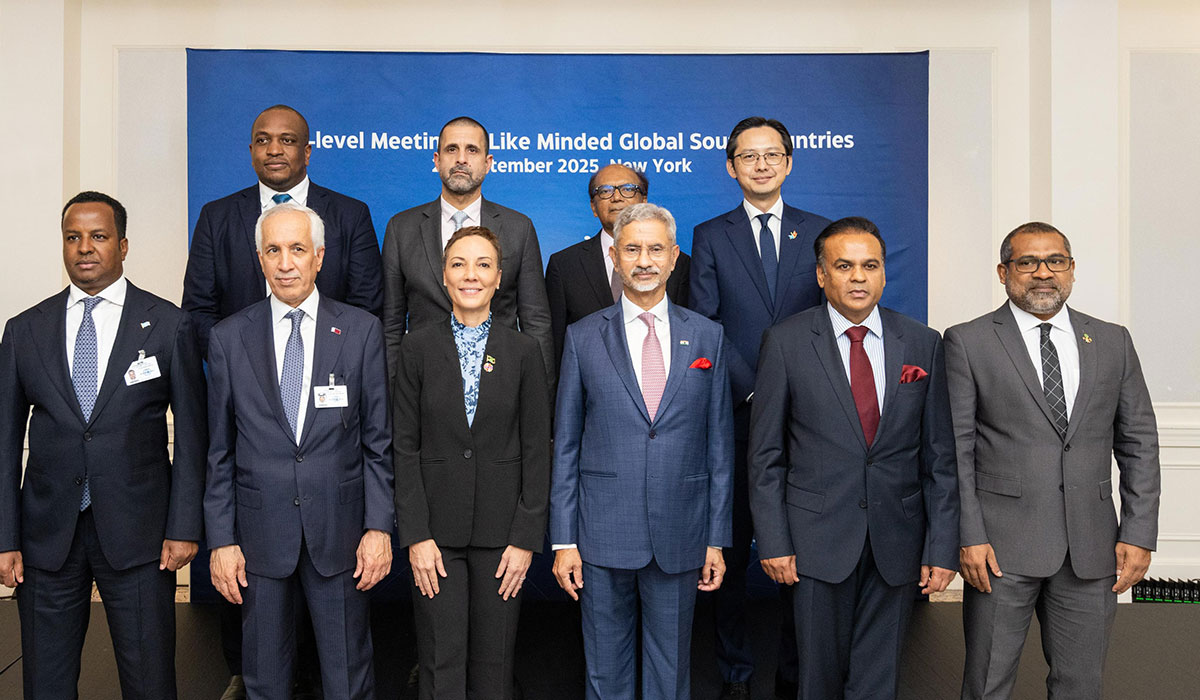India aims to transform the Global South from rule-takers to rule-shapers, fostering empowerment and leadership. By advocating for equitable global governance, India seeks to amplify the region's voice in shaping international policies, driving sustainable development, and promoting inclusivity on the world stage.
India's Mission: Empowering the Global South as Rule-Shapers, Not Rule-Takers
In an era of shifting global dynamics, India is positioning itself as a pivotal leader for the Global South, aiming to elevate developing nations from mere rule-takers to influential rule-shapers. This ambitious mission seeks to foster equitable governance, sustainable development, and strategic autonomy amid rising geopolitical tensions.
The Imperative for Transformation

The Global South, encompassing regions in Africa, Asia, Latin America, and beyond, has long been at the receiving end of international rules crafted by dominant powers. A recent report highlights that India's task is not to supplant one hegemony with another but to cultivate a cooperative framework where Southern producers, shippers, and regulators achieve dignity and competitiveness.
By blending defensive reactions to unfair measures with proactive initiatives in shipping, warehousing, finance, and capacity building, the region can redefine its role in global trade. This shift is crucial as economic fortunes improve but privilege lags behind. As noted in analyses, rising power in the Global South has not translated into proportional influence, fueling demands for realignment in decision-making forums like the UN Security Council.
India's Leadership in the Global South
India emerges as the most credible voice for the Global South, leveraging its democratic framework, economic growth, and strategic positioning. Rooted in shared histories of colonization and mutual aspirations for self-reliance, India's engagement spans initiatives like the Voice of Global South Summits (VOGSS), themed "An Empowered Global South for a Sustainable Future." These platforms address pressing challenges such as climate change, debt burdens, and food security that disproportionately impact developing nations. During its G20 presidency, India amplified this voice by integrating the African Union as a permanent member, earning praise for bridging divides between the G7 and the broader South. Furthermore, India's support for multilateral reforms underscores its quest to become a rule-shaper in a multipolar world.
Strategies for Empowerment
Central to this mission is the development of tailored infrastructure and corridors that align with Southern realities. Examples include a "millets corridor" linking Eastern Africa and Western India, and "green shipping micro-corridors" between mid-sized ports to slash freight costs and emissions. These initiatives turn compliance into competitiveness, ensuring goods move efficiently without bottlenecks.Capacity building forms another pillar, with India sharing expertise in digital infrastructure, agriculture, and ICT through programs like the IBSA Fund and Digital India extensions.
As one report states, "When rules are matched by rails—digital, green, and maritime—the South is no longer walking someone else’s path. It is drawing its own map." India must carry this playbook to forums like BRICS, IORA, BIMSTEC, and the India-Africa Forum Summit, urging proactive leadership over passive adjustment.
Challenges and Opportunities
Challenges persist, including competition from powers like China, which also vies for Global South leadership in alliances such as the SCO. India's non-aligned yet supportive stance on the rules-based order—selective and pragmatic—requires balancing self-interest with global mediation efforts. Yet, opportunities abound in an era of instability where the Global South questions "whose rules, and to what purpose?" India's soft power, from NAM's founding to G20 successes, positions it to drive inclusivity and reform.
A Call to Action
The Global South faces a stark choice: remain passive or chart its course. India's mission embodies the latter, promoting South-South cooperation for sustainable futures. As Cuban President Miguel Díaz-Canel echoed at the G77 Summit, "It is now up to the South to change the rules of the game."
India's mission is to empower the Global South to shape global rules, not just follow them
T20 World Cup: South Africa lay down marker with big win over India
South Africa defeated India by 76 runs in their opening Super 8 match of the T20 World Cup 2026, snapping the hosts' 12-match winning streak and servi
Sundar Pichai and Sunil Gavaskar showcase T20 World Cup 2026 trophy on the field
Tech giant Sundar Pichai and cricket legend Sunil Gavaskar unveiled the glittering ICC Men's T20 World Cup 2026 trophy on the field, building exciteme
NHPC enacts plan as Salal reservoir's capacity in Jammu & Kashmir shrinks 96% due to siltation
NHPC has launched a major desilting operation at the Salal Dam reservoir in Jammu and Kashmir, where silt buildup has reduced capacity by 96%, aiming
SBI aims to hike its green advances portfolio up to 10 pc by 2030
State Bank of India sets ambitious target to boost its green advances to 7.5-10% of total portfolio by 2030, supporting India's sustainable energy shi











